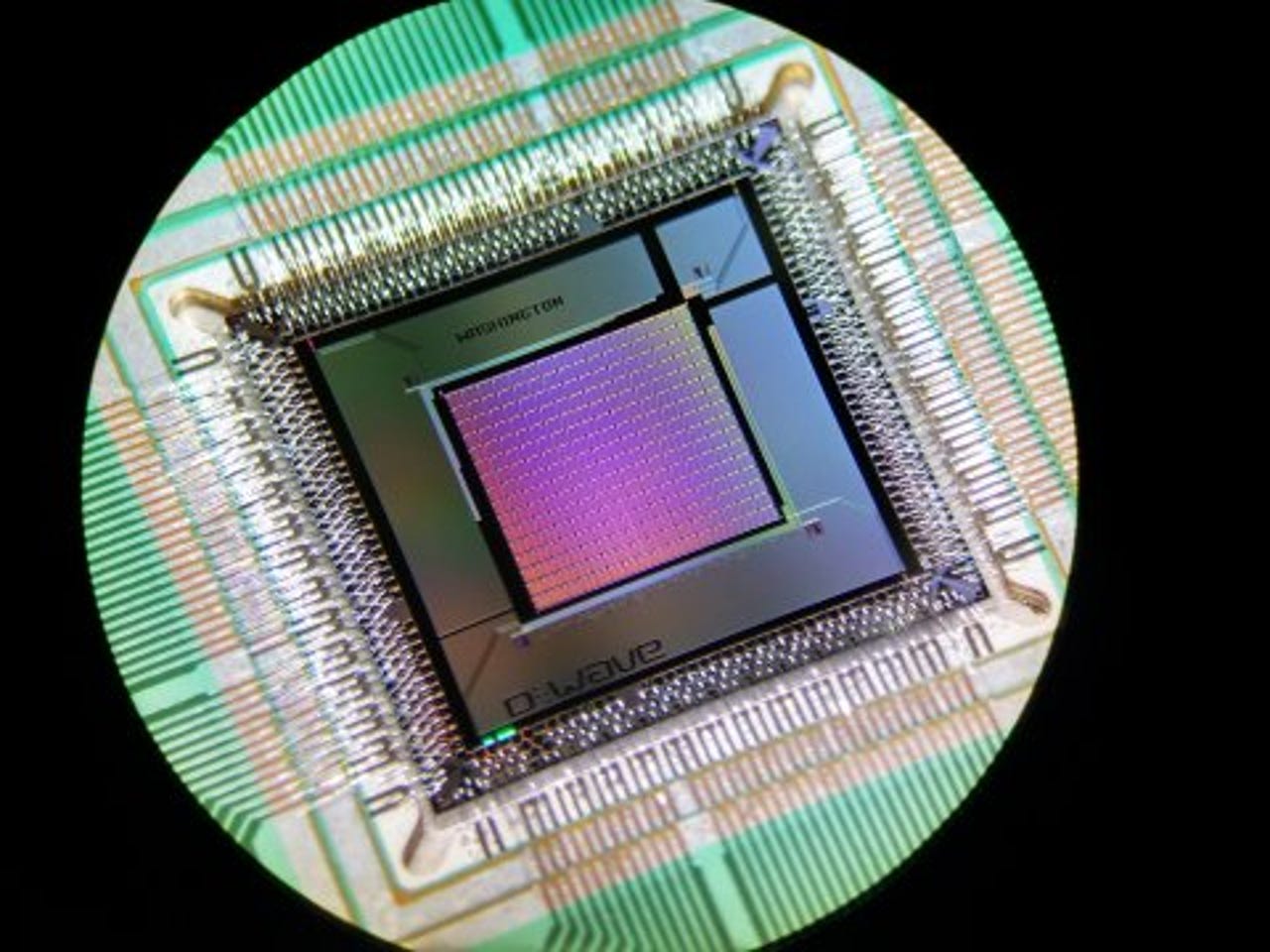Google's quantum computer can blitz a normal PC - but it's not ready for production just yet


The D-Wave 2X quantum computer system.
Google says its D-Wave 2X quantum computer is more than 100 million times faster than a conventional PC.
Google has put its machine-learning capabilities with great effect into apps such as Google Photos and Autofill and, of course, has some of the world's largest and smartest datacenters.
Yet all its computational power isn't good enough for the firm's machine-learning and artificial-intelligence ambitions of the future, to aid everything from search to its health-focused businesses.
Google's Quantum AI Lab shacked up with NASA and recently acquired the D-Wave 2X, described as the first quantum computer, which features a 1,000-qubit quantum processor supposedly capable of chewing through a mind-blowing number of possibilities when problem solving.
There has been some scepticism about the D-Wave 2X's capabilities, but Google's Hartmut Neven, head of the Quantum AI Lab, begs to differ following the results of study of "quantum annealing", which the D-Wave 2X is designed to support.
"We found that for problem instances involving nearly 1,000 binary variables, quantum annealing significantly outperforms its classical counterpart, simulated annealing. It is more than 10 to the power of 8 times faster than simulated annealing running on a single core," noted Neven.
As Hartmut has explained previously, quantum computing would offer a way to "cheat" on problem-solving tasks that conventional computers are poor at, such as finding the lowest point on a surface covered by mountains and valleys. Quantum computing would allow you to peep through a tunnel rather than scanning the entire surface for the lowest point.
The findings of its study are detailed in a new paper on "quantum tunnelling", published on Tuesday.
Despite the finding that its quantum computer can blitz a single-core PC, it still could be some time before the technology moves into production to solve Google's machine-learning challenges.
"While these results are intriguing and very encouraging, there is more work ahead to turn quantum-enhanced optimization into a practical technology. The design of next generation annealers must facilitate the embedding of problems of practical relevance," Neven said.
As this point, however, it's not easy to formulate a problem for the computer to be able to solve. "We need to make the input into the machine easier. That's not there yet," Neven told Bloomberg.
To that end, Google's has put together a hardware team at the Quantum AI Lab to build new quantum processors and superconducting electronics.
"We are optimistic that the significant runtime gains we have found will carry over to commercially relevant problems as they occur in tasks relevant to machine intelligence," Neven wrote.